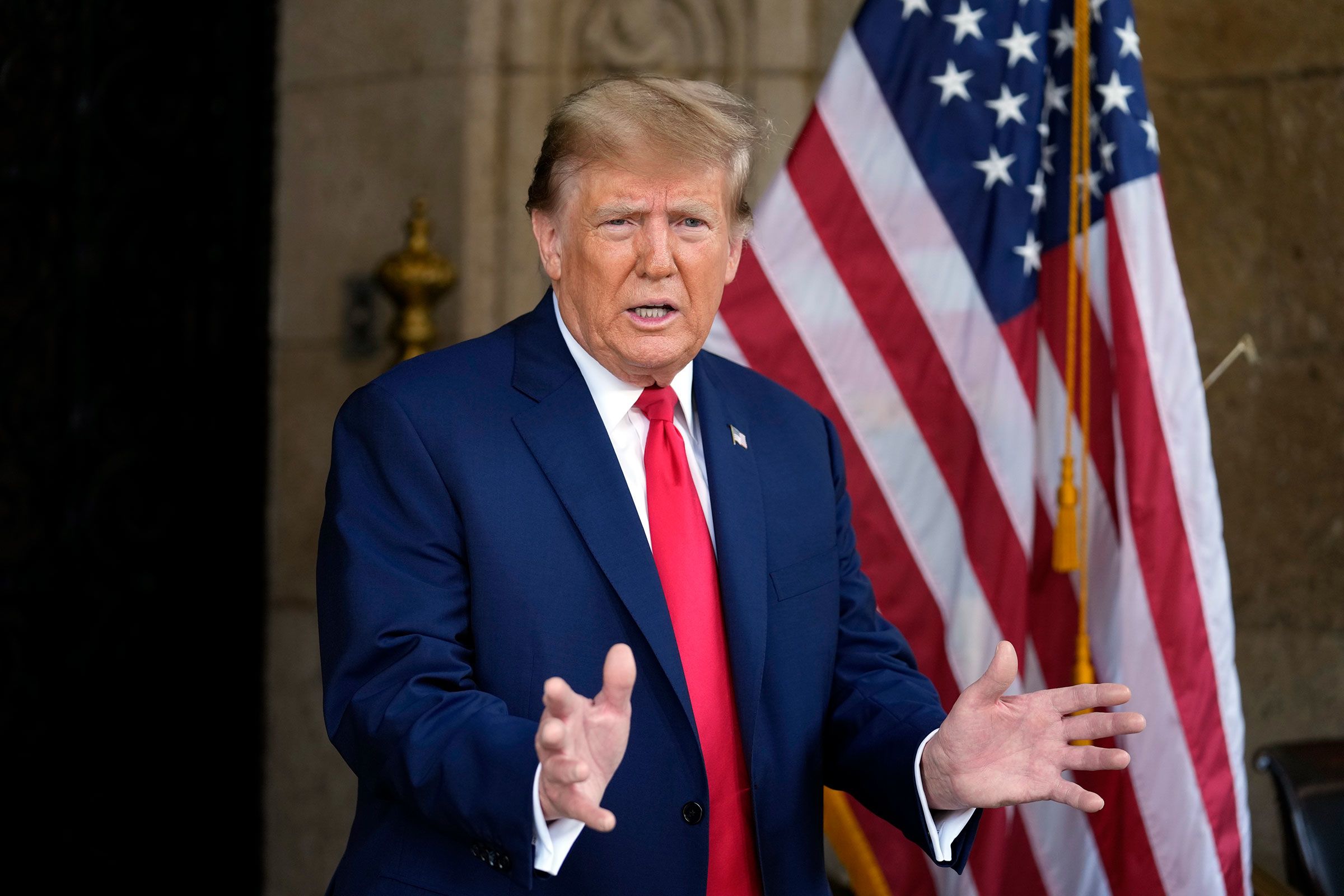On Monday, former President Donald Trump appealed to the Supreme Court, requesting intervention in the ongoing dispute over his claim of immunity from prosecution. This move once again places the nine justices in the position of resolving a question that could significantly impact his campaign for a second term.
Trump’s appeal comes in response to a unanimous decision from the DC Circuit last week, which categorically dismissed his claims of immunity from election subversion charges brought by special counsel Jack Smith. Trump’s legal team argues that a prolonged criminal trial during the election season would severely disrupt Trump’s campaign against President Biden.
The DC Circuit’s ruling, according to Trump’s attorneys, poses an immediate and irreparable threat to the First Amendment rights of Trump and millions of American voters. They argue that these voters have the right to hear Trump’s campaign message as they decide how to vote in November.
The emergency filing places the Supreme Court in the unique position of having to handle two politically sensitive issues involving the Republican presidential nomination front-runner. Just four days ago, the court heard a historic argument over whether Trump should be disqualified from the ballot due to his actions on January 6, 2021.
The Supreme Court’s response to Trump’s request will significantly influence whether, and how quickly, the former president will face trial for criminal allegations as he seeks the Republican nomination and presidency once again.
Trump has indicated that he might pursue two avenues to appeal the earlier decision: an appeal to the Supreme Court and potentially a separate rehearing before the full DC Circuit. This move highlights Trump’s unique position in a case where he has an incentive to file at the Supreme Court but also wants to keep the immunity question before the appeals court.
Steve Vladeck, CNN Supreme Court analyst and professor at the University of Texas School of Law, suggests that Trump’s clear goal is to prolong these proceedings as much as possible. This strategy, however, may not prevent the justices from treating the filing as an appeal.
The DC Circuit judges have set an aggressive timeline for Trump to appeal, pushing him directly to the Supreme Court and effectively requiring him to make his request by Monday. A key part of Trump’s legal strategy has been to delay his criminal cases until after the 2024 election.
The fight over Trump’s immunity has already led US District Judge Tanya Chutkan to postpone a trial date previously set for March 4. Chief Justice John Roberts, who handles emergency appeals from the DC Circuit, is expected to quickly establish a schedule that will provide insight into the timing.
Special counsel Smith, keen to avoid further delay in starting a trial, is expected to push for a swift resolution. It generally takes the votes of five justices to grant a stay.
The DC Circuit’s 57-page unanimous opinion on Tuesday allowed Trump to face charges for actions he took while in office and dismissed his claims that former presidents are immune from such prosecution. The court stated, “We cannot accept that the office of the Presidency places its former occupants above the law for all time thereafter.”
Trump argued in court that presidents might hesitate to act if they were concerned about the possibility of criminal charges after leaving office. He suggested that his criminal indictment in the 2020 election interference probe, if allowed to stand, would have a “chilling effect” on future administrations.
However, US Circuit Judges Karen LeCraft Henderson, Florence Pan, and J. Michelle Childs dismissed all of Trump’s arguments that these principles conferred broad protections to a former president. The judges were clear that the allegations against Trump are serious and left no doubt that the charges can be prosecuted.
The case has already reached the Supreme Court once before. In December, the justices rejected a request from Smith to bypass the DC Circuit and decide the immunity question on an expedited basis. At that time, the court did not explain its reasoning and there were no noted dissents.
Trump’s lawyers referenced the earlier decision in the first line of their brief, quoting the famous late Yankees catcher Yogi Berra, “This application is ‘déjà vu all over again,'”
During the oral arguments on Thursday in the separate ballot case, most of the justices seemed willing to side with Trump on the question of whether he can appear on the ballot or if his actions on January 6 made him ineligible under the 14th Amendment’s “insurrectionist ban.”
The court may have to decide how to handle Trump’s immunity claim while drafting an opinion in the ballot case. Together, these cases have thrust the court into the middle of this year’s presidential election in a way it has largely managed to avoid since its decision in Bush v. Gore effectively decided the 2000 election.
This story has been updated with additional details.

